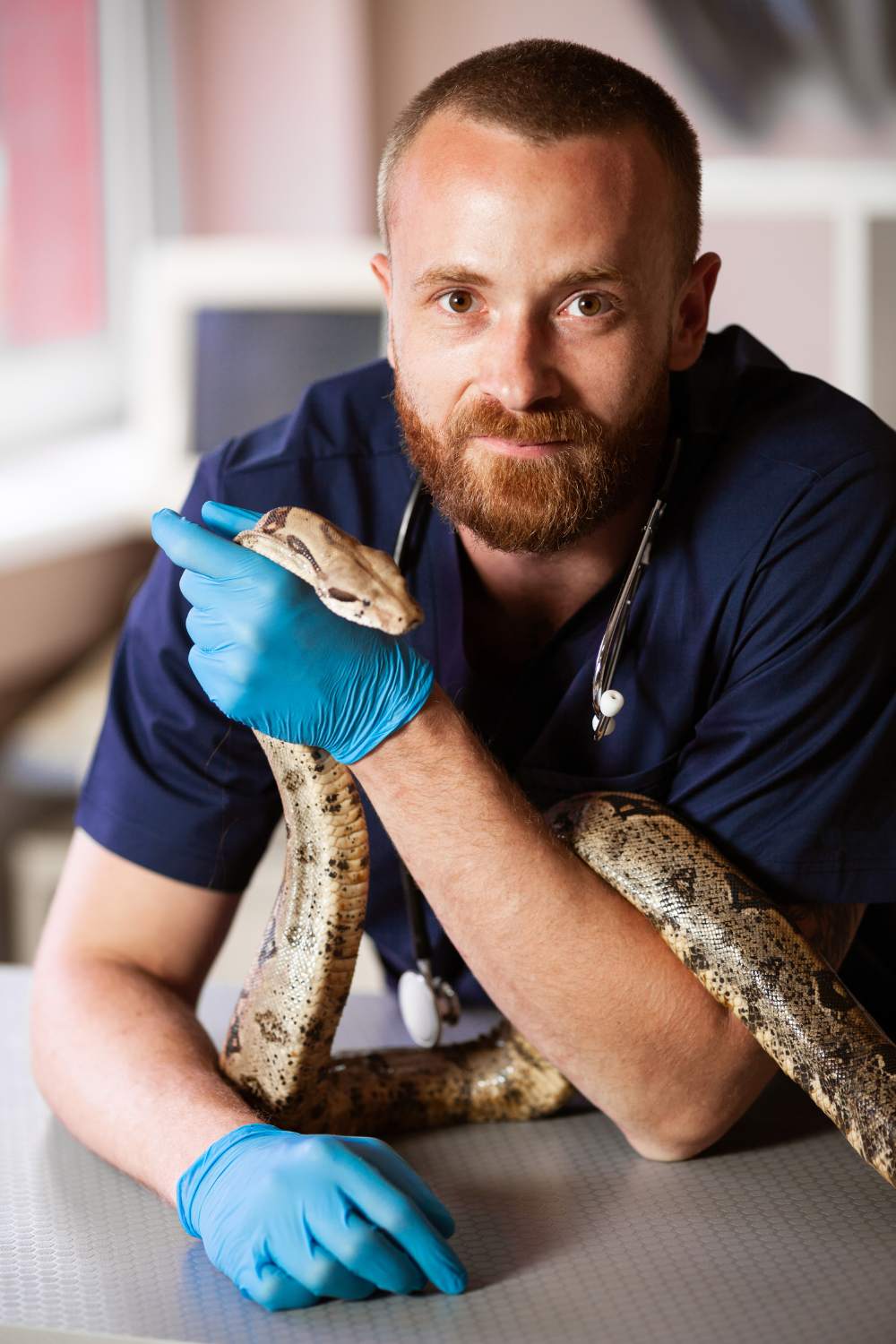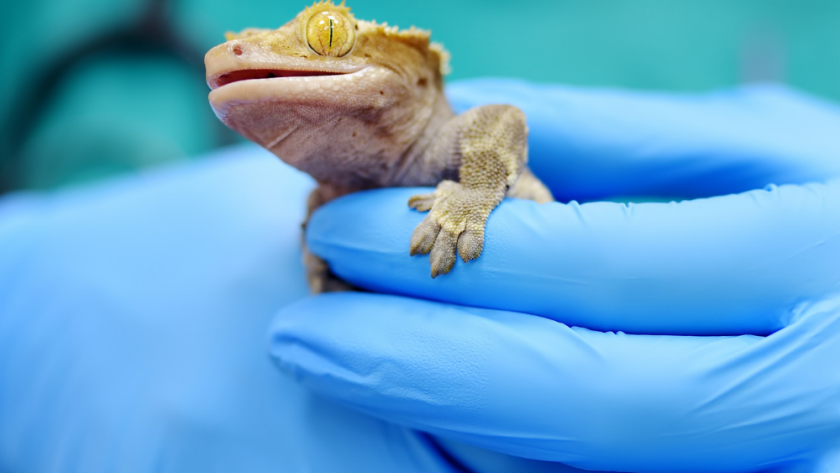Just like your domestic pets and animals, zoos and animal care centers need healthcare professionals to look after the health and well-being of exotic animals.
And that’s precisely what an exotic animal veterinarian is responsible for.
Brief job description of an exotic animal veterinarian

An exotic animal veterinarian focuses on diagnosing potential illnesses, treating injuries, and vaccinating undomestic animal species. They also have to undergo extensive training where they learn about how to take care of wild animals the right way.
Their exotic patients may include animals like lions, zebras, reptiles, tigers, giraffes, elephants, and aquatic animals. Even the hospitals are different for such exotic animals.
In fact, these health experts are also responsible for tackling the outbreak of a disease in a zoo or a wildlife center, determining feeding schedules, and performing captive breeding programs.
All in all, it is a thrilling profession and definitely takes your love for animals up a notch. So, if you are also passionate about becoming an exotic animal veterinarian, here’s something that can give you a headstart for your career.
- Qualifications you may require
Step 1: According to industry experts, any prospective veterinarian must complete a four-year degree course in veterinary medicine known as DVM or Doctor of veterinary medicine. It is crucial for aspiring veterinarians to graduate from an accredited veterinary school.
Step 2:After that, you’ll have to apply for the license to practice your profession. For this, you’ll have to pass the North American Veterinary Licensing Exam. In addition to this, many states also mandate that professionals pass the state exam. So, it would be best to research the licensing requirements your state would need you to practice your profession.
Step 3:And once you are done with that, you’ll also have to seek certification in zoological medicine, for which you’ll have to complete 3 or 4 years of the residency program.
Step 4: After you become a certified exotic animals veterinarian, there’s one more thing you would need to do. You may go for disability insurance for veterinarians that will protect you and your profession both on and off the job. The policy you choose should be able to offer certain guarantees when it comes to pricing, coverage, and benefits. So, choose smartly.
Your certifications, qualifications, and insurance can help you to prove your expertise and practice your profession without any hurdles.
- Skills you must have
First things first, as an exotic animals veterinarian, you must be able to solve the problems of your patients quickly and effectively. You must be able to diagnose those sick animals and have the skill to administer the problematic symptoms and diseases.
It is also crucial for you to be compassionate towards your patients. You should have adequate knowledge about how to treat those exotic animals with the utmost sensitivity, care, and respect.
And lastly, you must be able to deal with your teamwork without creating chaos. As an exotic animal veterinarian, there’s a good chance that you might have to treat some dangerous animals with a high risk of attack. And that’s where your leadership and ability to work as a team come into play.
To sum it all up,
By now, you might have got a brief idea about the basic responsibilities of an exotic animal veterinarian and what you would need to become one. Hopefully, the article was informative enough to create your interest in the profession.



